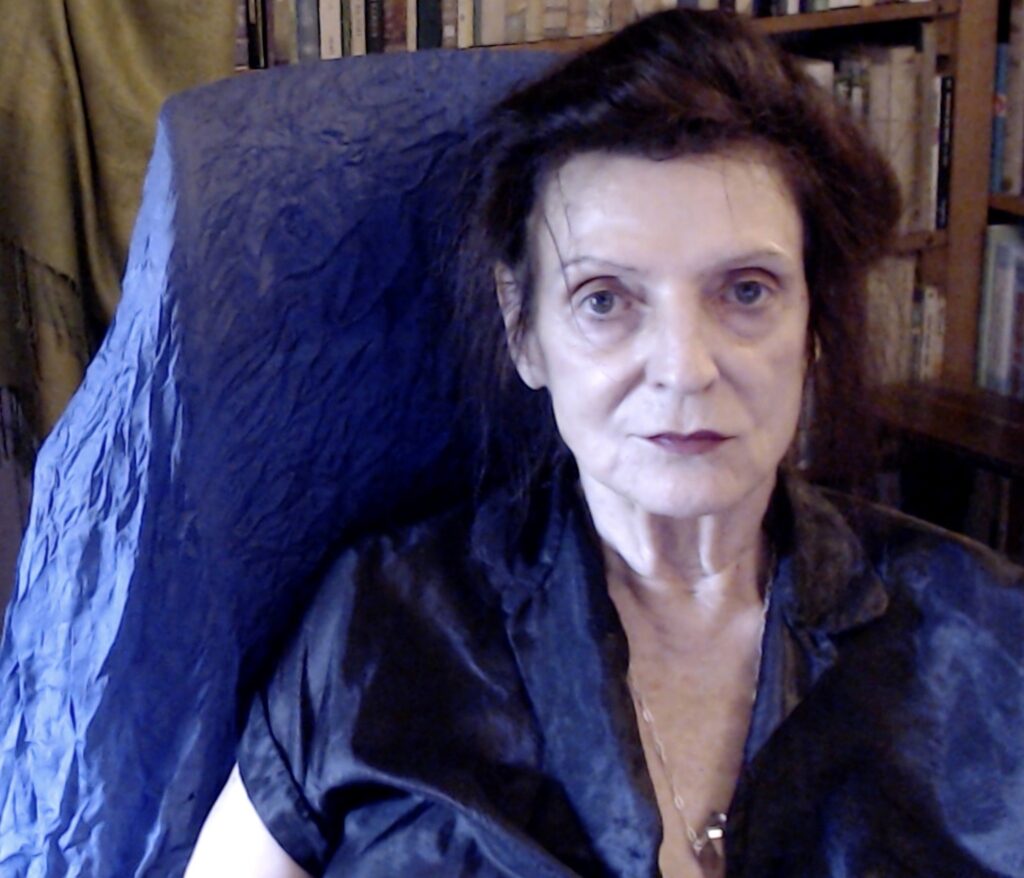Irmi Horn
Irmi Horn introduces Christiane Rochefort and reads from DAS RUHEKISSEN, the story of a woman’s love and bondage, told by the woman herself. Geneviève Le Theil falls for a young, addicted intellectual who uses all his intelligence to humiliate Geneviève ever more deeply, to rob her of the last remnants of her own being, to take away her thoughts, feelings and emotions. The way in which the idea of life triumphs in the deepest crisis, in which both should perish, in which both are ready to give up, is one of the astonishing twists in this astonishing book.
Christiane Rochefort (* 17 July 1917 in Paris; †24 April 1998 in Le Pradet in the Département Var) was a French writer and feminist. She published some of her writings under the pseudonym Dominique Féjos.
Christiane Rochefort was born in the 14th arrondissement of Paris, a working-class neighbourhood. After her baccalauréat, she studied a variety of subjects: medicine, psychiatry, literature and ethnology[1]. From 1945, she initially worked as a journalist, but also kept her head above water as a shepherdess and office worker. She also worked as a film actress and was head of the press office at the Cannes Film Festival until 1968. For a time, she also worked at the Cinémathèque française in Paris.
In 1958, her sexually charged novel Le Repos du guerrier was a scandalous success, reaching a circulation of 75,000 copies within six months and being made into a film with Brigitte Bardot in 1962. She was awarded the Prix de la Nouvelle Vague for the novel. Of her numerous novels, essays and translations, however, the novel Les petits enfants du siècle (Children of Our Time, made into a film by Michel Favart in 1974), published by Grasset in 1961, stands out in particular. It traces the childhood and youth of a girl in post-war Paris and also achieved a certain degree of fame in Germany thanks to its frequent use as school reading material in French lessons.
In her books, Rochefort has often reacted in a very offensive socially critical way to issues of the time. Springtime for Beginners, a coming of age and coming out story written before May 1968, is about a gay teenage dropout and was welcomed as literary support by the emerging German gay movement. Kinder was written as a pamphlet attacking all forms of education and was used like a bible by militant representatives of anti-authoritarian education. In The Door Behind, Rochefort addressed sexualised violence in the family. Her entire oeuvre is characterised by her examination of the difficult life within the nuclear family. Her sympathies always lay with the anarchic and lustful rebels.
In 1971, alongside Simone de Beauvoir and Gisèle Halimi, she was one of the co-founders of the organisation Choisir la cause des femmes. (Wikipedia)
Followed by the film version.
Translated with www.DeepL.com/Translator (free version)
One focus of our film art programme is, among other things, the coexistence of people, their confrontation with conflict situations. Circumstances of need that contribute to revolts and war are examined, as well as personal and social constraints and sensitivities that individuals have to deal with in their own lives and as world inhabitants in a threatened natural environment. All of these sensitivities are examined by directors in a cheerful, serious, ironic, sad, sentimental, instructive, disturbing or constructive way and want to contribute to meaningful communication and empathic understanding.
Many films belong to the kunstGarten series WOMEN EMPOWERMENT.
Indoors during the cold season and bad weather! Donations requested!
INFORMATION
- Please make reservations not later than 2 hours before the programme begins: kunstGarten@mur.at or +43 316 262787

